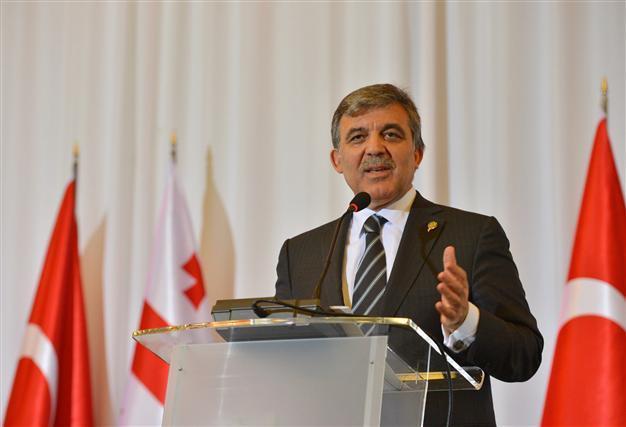Warning over European introversion, Turkey reiterates commitment to EU bid
ANKARA
 Turkey’s leaders have raised question marks about the future of the fundamental values on which the European Union was founded while still emphasizing that full membership in the union remains a strategic desire of the country.
Turkey’s leaders have raised question marks about the future of the fundamental values on which the European Union was founded while still emphasizing that full membership in the union remains a strategic desire of the country.“Today, the European Union is facing changes in the international system as well as the impact of the global economic crisis,” President Abdullah Gül said May 9, suggesting the EU might move away from its founding philosophy if the right decisions were not made.
According to the president, the EU actually has an acquis which would make it possible to get through such a thorny process.
“However, the greatest danger to the European people, who have prosperous living standards, would be to get dragged down by protectionist motives and act with an introverted reflex,” Gül said in a written message that was released May 9, on the occasion of Europe Day.
“As a matter of fact, the European Union which is founded on common values, has reached its current position by opening up, not by introversion. Enlargement has played a key role in the success of the EU project,” said the president, who was a former foreign minister that played a central role in producing the EU declaration in December 2004, the bedrock for Turkey’s accession negotiations in October 2005.
The new leadership of the EU, which will be elected in upcoming European Parliament elections, should embrace a strategic vision which will turn the union into a global actor, Gül said.
Extremist movements have been gaining ground throughout Europe and jeopardizing the EU’s fundamental foundation, he said, adding that these movements against integration contradicted both the flow of history and the EU’s progress.
Gül was not the only leader who addressed the need for the EU to fight against movements that pose a danger to its own fundamental values.
Identical themes
Prime Minister Recep Tayyip Erdoğan, who in the last few years has been at the center of EU criticism due to his government’s controversial policies that have been labeled authoritarian, also addressed facts that have been jeopardizing the fundamental values of the 28-member bloc.
“The rise of xenophobia, Islamophobia and racism – also due to the economic crisis – have been weakening the common values on which the EU has boomed, such as pluralism and cultural diversity, which is leading to concerns over the future of the European project,” Erdoğan said in his own Europe Day message, while maintaining that there was a need for an EU that would continue to play an effective and pioneer role in the international field.
“The most important network of relations, that will add strength to the EU and that will provide spread the union’s principles and standards to the wider region, is present with Turkey,” Erdoğan said, underlining how a dynamic and results-oriented negotiation process would be a win-win for both Ankara and Brussels.
A heavy-handed crackdown on anti-government demonstrations last year and a corruption scandal swirling around Erdoğan’s inner circle have generated the greatest challenge to the prime minister’s 11-year rule, drawing disapproval from senior officials in the European Union.
Gül and Erdoğan echoed each other as they both pledged Turkey’s commitment to its strategic goal of becoming a member of the European club despite flaws that they have underlined on the EU side.
A rise in “xenophobia, racism and Islamophobia” is first of all a threat against Europe’s own values, Gül said. “During such a period, Turkey has been unwaveringly upholding its European Union membership perspective which is its strategic choice.”
For his part, Erdoğan said: “Membership in the EU is a strategic choice for Turkey. The EU should also approach Turkey’s membership with a strategic view and should assess this issue within the framework of its long-term political and economic interests.”
















